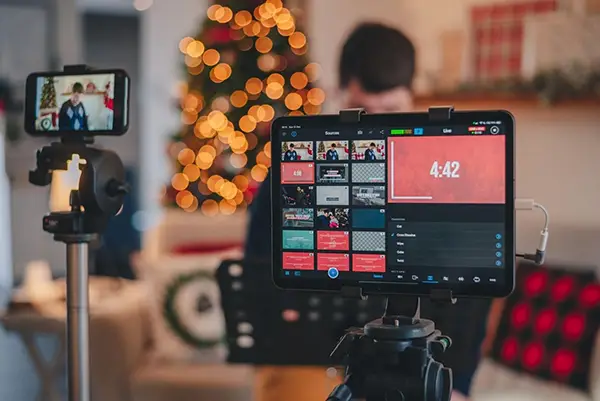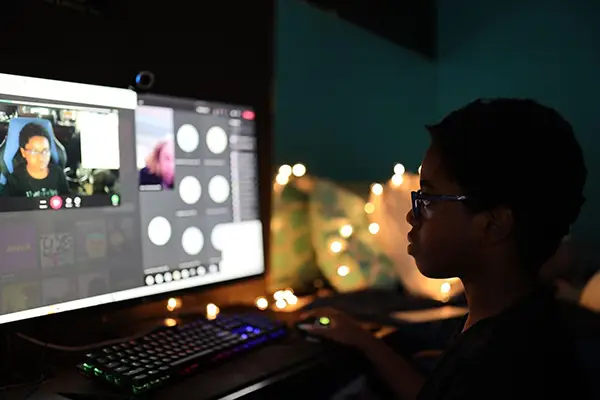Whether you’re a late-night gamer, vlogger, or influencer, captivating your audience should be your utmost aim. High-quality content boosts engagement and makes you appear more professional.
Besides, it fosters credibility and builds trust among your audience. If anything, it helps to understand the tips and tricks to improve your livestream quality.
High content quality may optimize your live streaming experience. However, there can be just too much on the way to make that quite unachievable. The good news is you can enhance your live stream quality, and it’s not even rocket science. This article will, therefore, offer the most practical tips to improve your livestream and never let any moment go past you.

A poor internet connection is frequently the root cause of poor live streaming quality. However, your streaming software and devices are also notable issues. Other possible reasons can include network congestion and improperly configuring your network settings. And it usually doesn’t matter whether you’re a YouTube live streamer or doing a rumble live stream.
It’s best to understand what deteriorates your content quality during your live streams to figure out ideal solutions. Poor-quality live streams can go from simply annoying to detrimental if you’re a professional.

You can get your high-quality live streams back. All it takes is understanding what to do exactly, and here are the tips to ensure that.
A poor network connection can be why you may struggle to attain and maintain high-quality streaming. It’s arguably the most significant issue you should look into before delving further into your diagnosis.
Video quality, measured in megabytes per second (Mbps), typically improves with your connection’s speed. Please ensure your internet’s speed ranges between 12 and 13 Mbps for better quality live streaming.
Live streaming encompasses audio and video, which must be of the highest quality for a more immersive experience. That means your camera and speakers must be top-shelf, and your microphone should measure up to the highest standards.
Therefore, obtaining high-quality audio and video can be more seamless without glitches. These devices should also have high-end built-in features to support your live streaming seamlessly.
The right live streaming software should be compatible with your devices, including cameras, capture cards, and microphones. Moreover, they should have a user-friendly interface and render numerous customization options.
It should also have a viable multi-source capture capability to allow seamless switching from cameras, media files, and screens. Your streaming experience typically gets better as long as your peripherals work just fine. Your software pick can determine whether or not you can achieve that.

A log of your browser’s tab and having many active windows can vastly impact your live streaming experience. Other applications you don’t directly use during your live streams can quickly deteriorate your live streaming quality.
That’s because numerous active applications, tabs, and windows use up your device’s Random Access Memory (RAM) and can slow it down. Therefore, please always take your time to weed out any random applications and windows that might diminish your streaming quality before getting started.
A video encoder helps convert video from raw formats to being more compatible with your live streaming. Doing so enhances your content and makes your live stream of higher quality.
The good thing is that high-end encoders can convert video and match their quality with your device’s capabilities. That means there’s hardly a chance that you may encounter buffering or deal with low-quality video and sound streams.

Your lighting setup should be bright and well-lit when engaging an audience. A low-light setup can be comfortable, especially if you can hardly handle bright lights. However, it may be inconvenient to your viewers, who always expect the highest quality live stream content. One ideal way to ensure high-quality live streams is by using natural light, preferably from your windows. You can use sufficient ambient lighting at night, twitching it at a level comfortable to your eyes and convenient to your viewers.
WiFi can be convenient, especially when using your cameras and portable live-stream devices. However, it can be unreliable regarding your connection’s strength.
Even worse, having numerous devices connected to the same WiFi can consume your bandwidth, leading to low-quality live streams. An Ethernet cable routes you to your router directly and won’t cause any network quality fluctuations that might diminish your streaming quality.
Video bitrate refers to the depth of information, including audio and video. It’s the amount of video and audio data that appears when streaming content online every second. It directly impacts your live-streaming content and may diminish your visual quality. You can use a video bitrate 1080p for the best quality live streaming.
Visual and audio disturbances can impact your live streaming quality. If possible, ensure you mute your ambiance and eliminate any sounds and visual distractions, including music and materials that don’t relate to your streaming content. Doing so can help you communicate your message well, improving your live streaming experience.
Getting a high-quality live stream means identifying the possible underlying reasons. You can retrieve your high-quality live streams by first addressing your internet connection since it’s typically the reason for having low-quality live streams. Knowing which buttons to push can help you achieve a high-quality live stream to entice audiences with more transparent communications.